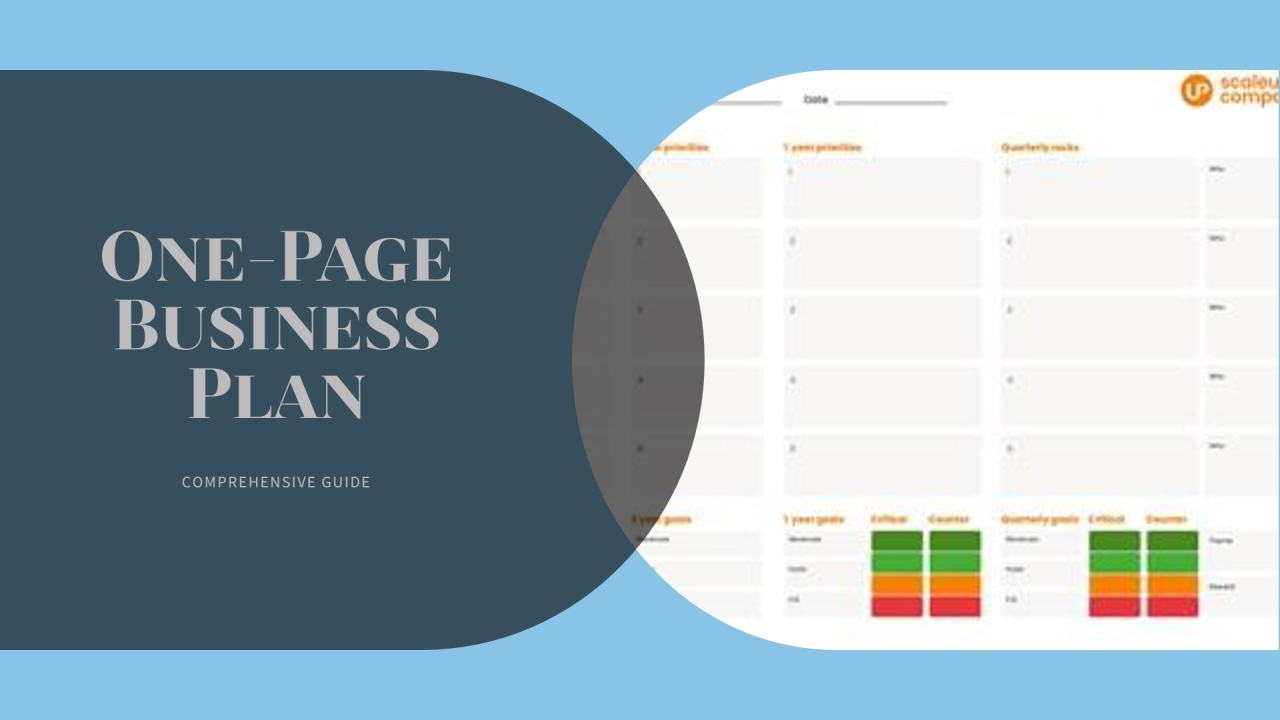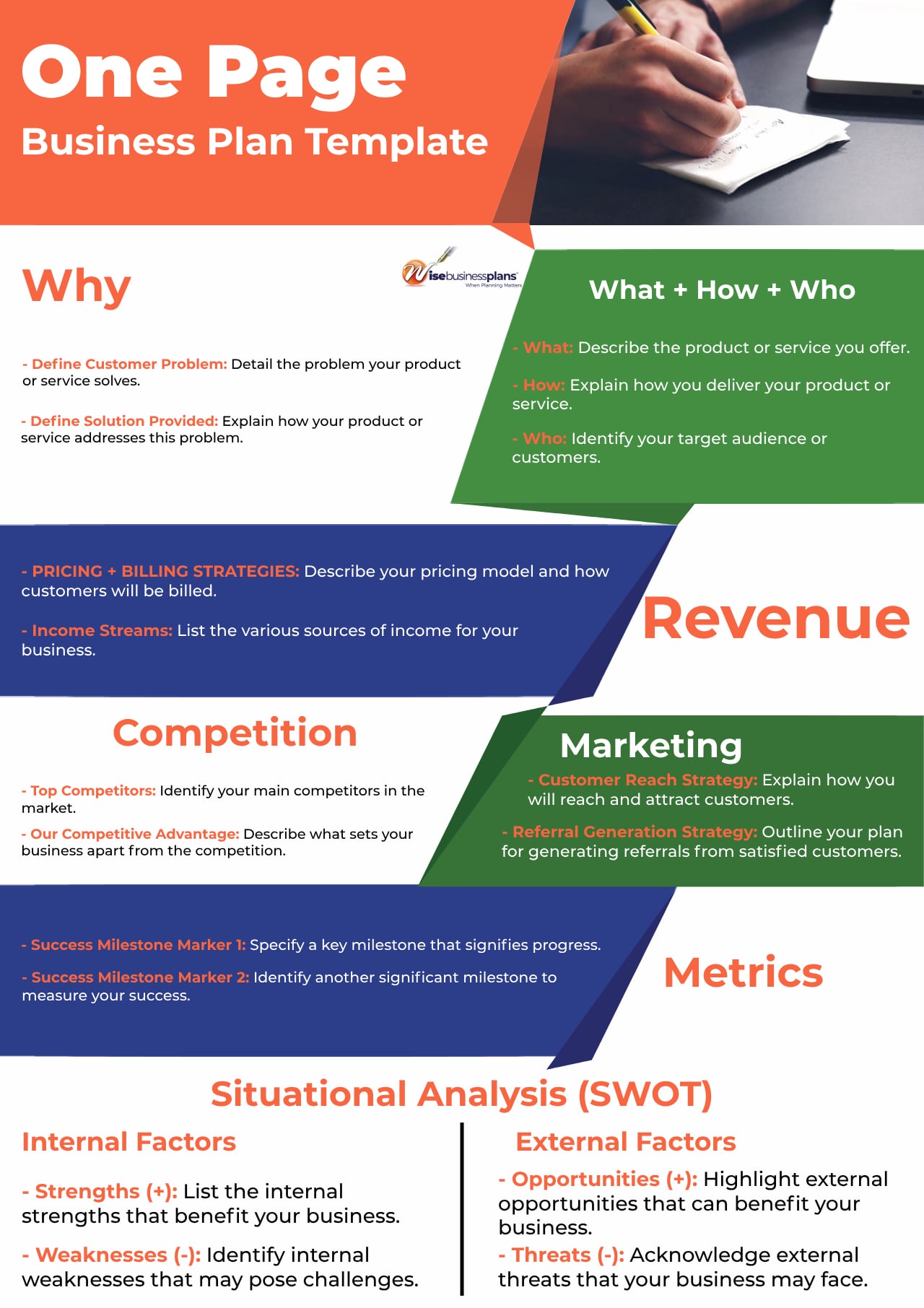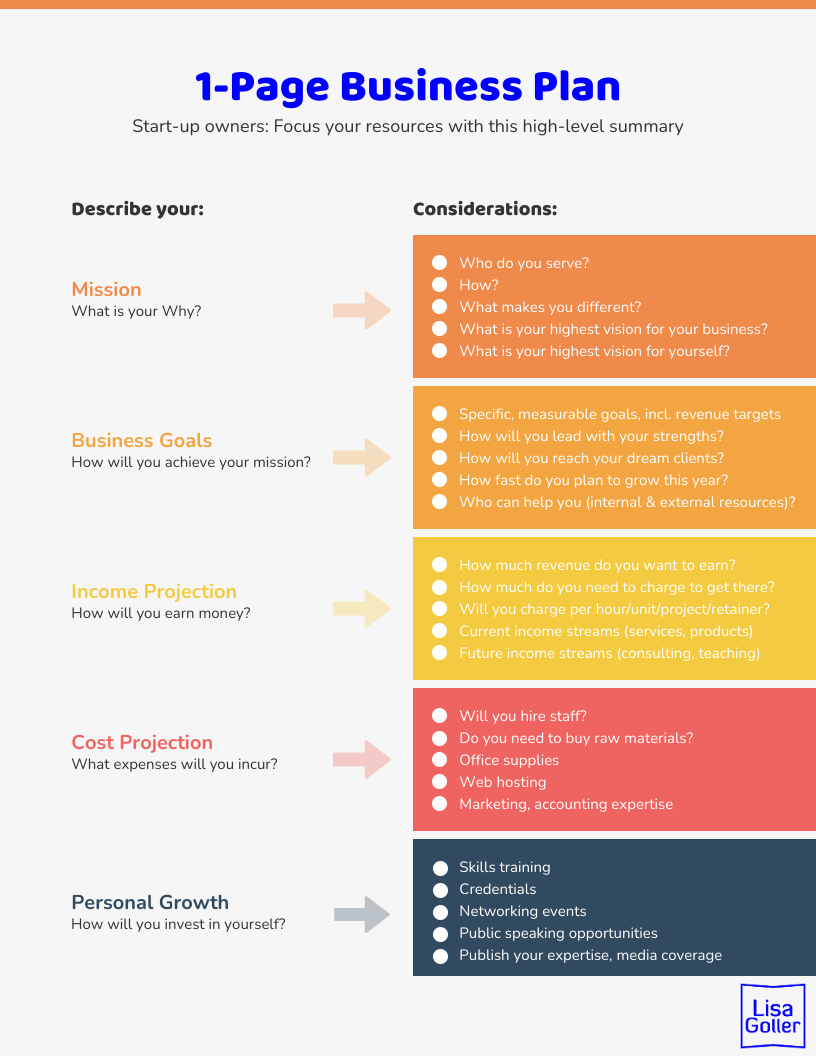 How to Write a One-Page Business Plan That Works
How to Write a One-Page Business Plan That Works
How to Write a One-Page Business Plan That Works
Do you know that a one-page business plan can be all you need to write to clarify your vision, stay focused, and attract support? but how should you write it? Writing a business plan sounds like a huge task — especially for new entrepreneurs in Nigeria. Many people put it off for months, thinking they need to write 20 pages, use big grammar, or include complex financial analysis.
The truth is, you don’t need a bulky document to get started or to convince someone about your business idea. Whether you’re starting a small food business, launching an online store, or applying for a grant, a simple one-pager helps you organize your thoughts and communicate your plan effectively.
This article will show you step-by-step how to write a one-page business plan that actually works — with practical examples, Nigerian relevance, and a format anyone can follow.
Table of Contents
- Why a One-Page Business Plan Works
- When to Use a One-Page Plan
- What to Include in Your One-Page Business Plan
- Business Name and Summary
- Problem and Solution
- Target Market
- Products or Services
- Marketing and Sales Strategy
- Revenue Model and Financials
- Key Milestones and Next Steps
- Final Thoughts
- Need Help Starting Your Business?
- Frequently Asked Questions (FAQs)
Key Takeaways
- A one-page business plan simplifies your strategy and keeps you focused
- It’s perfect for early-stage businesses, small startups, and quick presentations
- The key sections are: business summary, problem, solution, market, product, marketing, money, and next steps
- You don’t need perfect grammar or fancy words — just clarity and purpose
- Investors and grant panels love short, clear summaries of your business idea
- You can always expand the plan later — but start with one page
- It saves time, helps with execution, and is easy to update regularly
 How to Write a One-Page Business Plan That Works
How to Write a One-Page Business Plan That Works
-
Why a One-Page Business Plan Works
Most Nigerian entrepreneurs don’t have time to write or read a 30-page plan. You’re trying to start fast, survive, and grow. A one-page business plan gives you the clarity and direction you need — without wasting time or getting overwhelmed.
It’s especially useful when:
- You’re just starting out
- You need to pitch an idea quickly
- You’re applying for a small grant
- You want a roadmap for yourself or your team
- You want something you can refer to and adjust easily
Less is more — as long as you know what you’re doing.
-
When to Use a One-Page Plan
A one-pager is perfect for small businesses, informal entrepreneurs, side hustles, and early-stage startups.
Use it when:
- You’re launching a new product or idea
- You’re testing a business concept before investing more money
- You need to quickly communicate your business idea
- A program or grant request asks for a short pitch
- You want to stay focused and organized
You can also use a one-page plan to prepare your thoughts before writing a full business plan later.
-
What to Include in Your One-Page Business Plan
Your one-pager should answer 8 main questions:
- What is the business about?
- What problem are you solving?
- What solution are you offering?
- Who are your customers?
- How will you reach and sell to them?
- What are your main products or services?
- How will you make money?
- What are your next steps?
Each answer should be brief — 2 to 4 lines is enough.
-
Business Name and Summary
Start with the name of your business and a short summary.
What is the business about? What do you do, and for whom?
Example:
SmartServe Food Delivery is a home-based business that cooks and delivers affordable local meals to working-class people and students in Lagos. We offer fast delivery, hygienic packaging, and flexible payment options.
Keep it simple and easy to understand.
-
Problem and Solution
Every business must solve a problem. What issue are your customers facing?
Then, explain how your business is solving it.
Problem Example:
Many workers and students in Lagos don’t have time to cook or eat healthy meals during the day.
Solution Example:
We cook and deliver fresh meals daily, giving them convenience, nutrition, and peace of mind.
This shows that your business is relevant and needed.
-
Target Market
Who are you selling to?
Mention the group of people most likely to buy from you. Don’t try to serve everybody.
Example:
Our target customers are busy professionals and university students in Yaba, Lagos, aged 18–40, who eat lunch outside regularly and want affordable meals with quick delivery.
Knowing your audience helps you plan your product, marketing, and pricing better.
-
Products or Services
List your main products or services briefly. Focus on what you are offering and how it benefits the customer.
Example:
We offer rice and stew, jollof rice, spaghetti, soups, swallows, and snacks. Customers can order via WhatsApp or Instagram and receive meals within 45 minutes.
Include only your core offerings — not every single item.
-
Marketing and Sales Strategy
How will people know about your business? And how will you convince them to buy?
Talk about the channels and tactics you’ll use.
Example:
We’ll promote our meals using WhatsApp status updates, Instagram posts, flyers in offices, and daily food deals to attract new customers. We’ll also give referral discounts to loyal buyers.
The simpler and more realistic, the better.
-
Revenue Model and Financials
How will your business make money?
Mention your pricing, cost structure, profit estimate, and how you plan to stay profitable.
Example:
Each meal costs ₦500 to prepare and sells for ₦900, giving a ₦400 profit per plate. We aim to sell 30 plates daily, with weekly revenue of ₦189,000 and net profit of ₦84,000.
Don’t go too deep into finance — just show you understand how money flows.
-
Key Milestones and Next Steps
What actions will you take in the next few weeks or months to grow?
Example:
– Register business name with CAC
– Launch WhatsApp ordering system
– Print and share flyers in Yaba
– Offer first 50 customers a 10% discount
– Monitor weekly sales and gather customer feedback
This shows you are serious, organized, and ready to execute.
 How to Write a One-Page Business Plan That Works
How to Write a One-Page Business Plan That Works
Final Thoughts
You don’t need a long or complicated document to start a successful business. A well-written one-page business plan gives you the direction, clarity, and confidence to launch and grow.
Keep it short, focused, and easy to update. Use it to guide your daily actions and remind you what matters most.
As your business grows, you can expand the plan — but never underestimate the power of starting simple.
If you’re serious about building a business, take 30 minutes today and write your one-page plan. That small step can make a big difference.
Read Also: Business Plan VS Proposal Whats the Difference
Need Help Starting Your Business?
At Dayo Adetiloye Business Hub, we help Nigerians like you start and grow profitable businesses — no matter your budget. From writing business plans to getting registered and finding the right business idea, we’ve got your back.
Call or WhatsApp us on +234-806-077-9290
Let’s build your dream business — together!
Frequently Asked Questions (FAQs)
What is a one-page business plan?
It’s a short summary of your business idea, covering your goals, market, product, money plan, and next steps — all on one page.
Who should use a one-page plan?
New entrepreneurs, small business owners, side hustlers, and anyone who wants a simple business roadmap.
Is a one-page business plan enough for grant applications?
Some grants accept short plans, but others may require more details. Use your one-pager as a base, then expand if needed.
What tools can I use to write it?
Use Microsoft Word, Google Docs, or even your phone’s Notes app. Just keep it clean and structured.
How often should I update my one-page plan?
Update it every 3–6 months, or whenever your business goals or strategies change.
Can I present a one-page plan to an investor?
Yes, especially for initial meetings or pitches. Investors love clarity. You can always provide more details later.
What’s the difference between a one-page plan and a pitch deck?
A one-page plan is written text. A pitch deck is a visual slide presentation. Both can be used together.
Can I use bullet points in my plan?
Yes — just don’t overuse them. Short paragraphs are better for explanation.
Should I register my business before writing the plan?
Not necessarily. The plan helps you decide whether the business is worth registering.
10. Where can I get help writing my one-page plan?
You can contact experts like Dayo Adetiloye Business Hub for guidance, templates, or professional help.
Related